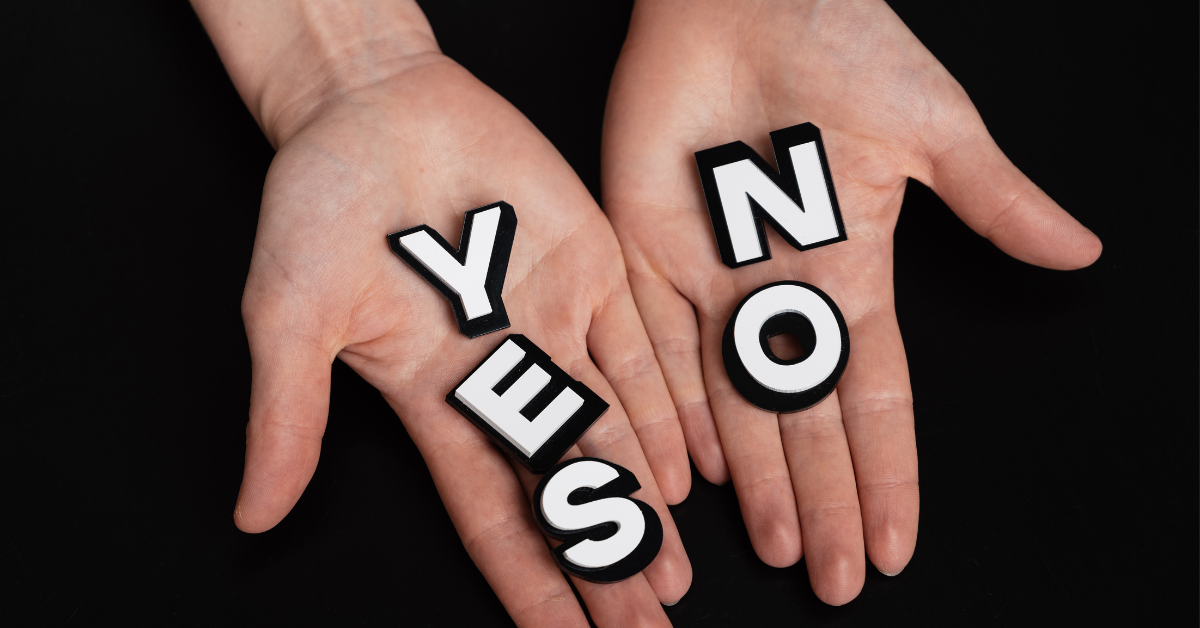Every word a witness says, or doesn’t, carries weight. While pivoting may feel instinctive, it often backfires and undermines the defense. Witness pivoting damages credibility and exposes the witness to aggressive follow-up questions by opposing counsel. Defense attorneys must train witnesses to resist the urge to elaborate and deliver clear, concise yes/no responses that maintain strategic control during deposition.
Why do defense witnesses tend to pivot during testimony?
The human brain favors familiar patterns and instinctively protects personal reputation. As a result, defense witnesses often feel compelled to defend themselves or overexplain when under pressure. However, elaborating only prolongs questioning by giving opposing counsel more to work with. Concise yes/no answers are the most effective way to reduce risk and maintain control.
Where Did Witness Pivoting Come From?
Witness pivoting has its roots in politics, where speakers are coached to redirect difficult questions toward their preferred messaging. In litigation, the same tactic occurs when a witness sidesteps a direct question by elaborating—e.g., “Yes, I did that, and here’s why…” instead of answering with a simple “yes” or “no.” This shift turns a deposition from a controlled fact-finding process into a conversational back-and-forth that gives opposing counsel room to dig. Even when well-intentioned, pivoting often backfires by revealing unnecessary details and weakening the defense’s strategic control.
Why Pivoting Is a Defense Vulnerability
Pivoting does more harm than good for several reasons. Evasion signals guilt, and instead of appearing candid, the witness comes across as defensive or nonresponsive. Defensiveness, overexplaining and long-winded answers offer opposing counsel new information and open additional lines of attack. All of this can be avoided with concise yes/no answers.
The Psychology Behind Pivoting
Defensively explaining oneself feels instinctive. The human brain is wired to protect personal conduct and reputation. When it is challenged, most people experience an urge to justify their actions. This particular emotional reflex is the very trap depositions are designed to exploit. Plaintiff attorneys create situations where the witness feels the need to fight back, believing that more information is always beneficial. Every extra detail is another opportunity for opposing counsel to find inconsistencies.
The Direct Yes/No Strategy
To prevent witness pivoting, train witnesses to follow one simple rule: answer only the question asked, using the shortest truthful response. If the answer is “yes,” they say “yes” and stop. If “no,” they say “no.” Nothing more. Witnesses should reserve even well-meaning explanations for direct examination at trial, where the defense controls the narrative. This disciplined approach prevents the deposition from turning into a mini-trial, denies opposing counsel new lines of inquiry, and preserves control over when and how the story is told.
How Attorneys Can Reinforce Yes/No Discipline
Defense counsel can prevent witness pivoting by setting clear expectations and intervening the moment a witness begins to stray. It’s critical to frame the deposition not as a chance to persuade or “win,” but as a setting where unnecessary explanations can cause serious strategic damage. When witnesses understand the risks of overexplaining, they’re more likely to stay disciplined and protect the defense.
Train Witnesses to Give Direct Answers
Overcoming the instinct to pivot takes more than instruction; it requires sophisticated witness training. Witnesses can learn to recognize traps, regulate emotions, and recognize cognitive distortions, through psychology-based cognitive and emotional training. This helps them resist the urge to overexplain and stay composed under pressure. With repetition and expert feedback, the shortest-answer strategy becomes second nature.
Practice During Mock Deposition Questioning
During preparation, counsel can model and drill the “shortest answer possible” rule in mock sessions. If a witness offers extra information rather than a simple “yes” or “no”, the attorney should pause the exercise, remind them of the one‐word rule, and repeat the line of questioning.
Deposition Tips
Litigation psychologists conducting neurocognitive witness training teach and train witnesses to recognize when they are pivoting. Consistent feedback and clear expectations during preparation ensure the yes/no discipline holds under pressure.
Improve Witness Performance with Courtroom Sciences
Witness pivoting may seem like a good way to explain and strengthen the defense narrative, but it often backfires. A disciplined approach with yes/no answers minimizes risk and protects the defense. Witness training is required for defense attorneys to ensure witnesses don’t become a liability.
Courtroom Sciences helps attorneys efficiently navigate litigation by providing psychological expertise, science-backed data, and expert support for all phases of litigation. Learn how CSI’s litigation consulting experts can improve outcomes for your next case.
Speak with one of our experts to get started.
Be confident in achieving superior litigation outcomes. CSI has the expertise, track record, and capabilities to help you win.



